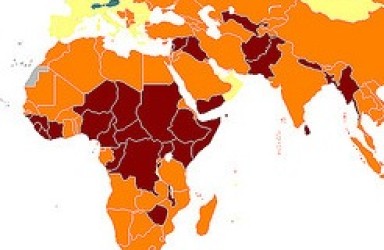How Appealing are CBRN Weapons to Terrorist Groups?
Chemical, biological, radiological and nuclear (CBRN) terrorism is often portrayed as one of the greatest threats facing the world. But to the rational terrorist, acting with concern to the strategic considerations of external support, possible retaliation and mass-casualty outcomes, CBRN weapons are of limited appeal.
What is the terrorist threat in cyber-space?
The typical approaches to warfare, force, offence, defence and deterrence, do not necessarily cross over into cyber conflicts, be they for cyber warfare or countering cyber-terrorism. The world of network interactions changes the rules of the game, where the attackers can more easily remain anonymous, and the targets can be anything that is on an open network.
Is Israel’s policy of targeted killing synonymous with assassination? Can it be legally or morally justified?
Israel is often criticized for its policy of targeted killing, which has escalated following the breakdown of Israeli-Palestinian communications of October 2000. Although Israel defends this policy, claiming that it can be both legally and morally justified, it has failed to provide an adequate definition.
Why are Nuclear Weapons So Appealing to Nation-States in the 21st Century?
In an anarchical system, for large states, indebted to a Cold War strategic culture, nuclear armaments offer the capacity to irrationalise major inter-state war, therefore creating the foundations for great-power peace and stability. Similarly it gives small states the ultimate life insurance, allowing them to defy the preponderance of more powerful nations.
United Nations Peacekeeping and the Question of Reform
Since the first peacekeeping operation was deployed some sixty years ago, peacekeeping has developed to become one of the most important areas of UN responsibility. The rapid growth of UN peacekeeping has meant that this development has often happened in an ad hoc and relatively unguided manner. As a result mistakes and failures have occurred.
Food Security and Population Growth in the 21st Century
This study examines the relationship between agriculture growth and population growth rates in countries around the world. In particular, this paper seeks to identify the difference in the relationship between population growth and agricultural growth among the following regions: Africa, Asia, Europe, North America, Latin America and Oceania.
Are Failing and Failed States a Post-Cold War Phenomenon?
As security threats have altered from regional instability caused by ‘rogue states’, to overarching security concerns which can come from non-state actors and state-actors alike, actors in the international arena have been urged to shift their attention towards the causes of these menaces; dysfunctional societies.
Radical Islam: both a product of globalisation and a serious challenge to it?
Radical Islam has come to play a very significant position within the international realm. It has taken terrorism, which was always a weapon of the weak, though usually with little perceived effect, and created what can be seen as a quite considerable challenge to globalisation and the international community.
What role does the AIDS pandemic play in accounting for poverty in sub-Saharan Africa?
This paper will highlight the significance of the AIDS pandemic in South Saharan Africa and assess the linkages between HIV/AIDS and poverty, both at a macro and micro level. It will argue that the dynamics of the epidemic are a cause as well as a symptom of poverty and underdevelopment in the region.
Is it futile to attempt to prevent torture using international law?
Although breaches to the torture ban could suggest the uselessness of international human rights law when national interests and politics are involved, it has an undeniable role in the development of legal condemnation against torture












